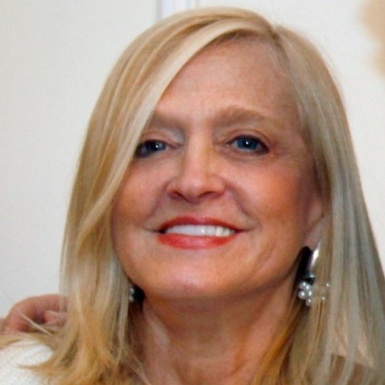We Are Women, Hear Us Roar
Sign up and receive information on the latest news and updates.
Editor's note: This piece originally appeared on Huffington Post Impact
Okay, so here is the Alzheimer's disease reality: Women are twice as likely as men to have Alzheimer's. Women are also twice as likely as men to be caretakers of Alzheimer's victims. Have I gotten your attention yet? We of the gentler, weaker, more adaptable sex are screwed.
We're talking big numbers -- of the 5,100,000 victims of this fatal disease, 3,400,000 are women. Of the 15,000,000 caregivers, 10,000,000 are women. Many of these women have to quit their jobs because tending to Alzheimer's patients is a 24-7 job with no pay. So much of what has been accomplished in the last few decades for women in the workplace will be erased unless we do something to stop the trajectory of this hideous killer.

So, is the greater percentage of women with Alzheimer's due to the fact that we live longer? The answer is, somewhat, yes. But there are other reasons and we have to find out precisely what they are.
Not surprisingly, this has yet to be addressed in any consequential way. Remember, doctors used to think that heart attacks were a male disease, so studies were totally focused on that gender. But we now know that the number one cause of death for women is heart attacks. Women experience different symptoms and narratives from men. Isolating those female experiences and symptoms is now saving lives. The good news for women is that, if caught in time, they can live with the disease, recover from it and find ways to stop a recurrence. Ah, if only it were that easy for Alzheimer's. Alzheimer's victims cannot stop, recover from or live their life with this disease. It is a death sentence -- not the romanticized long goodbye; rather a slow, excruciating goodbye.
On the theory that women have to help themselves, we at USAgainstAlzheimer's have started a new movement, WomenAgainstAlzheimer's, to demand studies and answers. Doing crossword puzzles and taking fish oil supplements aren't the answer (though as my mom would say, couldn't hurt), but they don't solve this disease. Neither is 'hope' a strategy. To do this, we need government funding. We have to demand it. I admit that being demanding is not white-glove or perhaps ladylike, but then ladylike doesn't start a movement.
Research in Alzheimer's is grossly under-funded. Consider these stats:
- Of the 15.4 Americans who are unpaid caregivers to Alzheimer's patients, 70% are women (this was definitely the wrong ceiling to break).
- Families spent 17.5 billion hours of time as caregivers, valued at more than216 billion in wages, primarily paid to women.
- 80% of caregivers report stress, anxiety and depression caused by the 24-hour care for a loved one -- while neglecting their own care. Alzheimer's care costs109 billion in 2010 -- more than heart disease and cancer.
And how much are we investing in research to cure, stop, or delay this disease? $450 million, whereas HIV/AIDS receives $3 billion, heart disease receives $4 billion and cancer receives $6 billion.
All of which is to say that we need to change business as usual, because if not us, who?
So what can we do?
First, we at WomenAgainstAlzheimer's believe that we are strongest when we are linked together fighting for a joint purpose. We hope you will visit WomenAgainstAlzheimers.organd join our movement.
Second, write to your elected representatives in Congress to ask that they, at the very least, double our funding for Alzheimer's research.
Third, use your contact list and social media to inform and activate everyone you know to join the fight. We can no longer afford to be passive.
Sex matters.
Women are power.
End of discussion, start of a movement.
